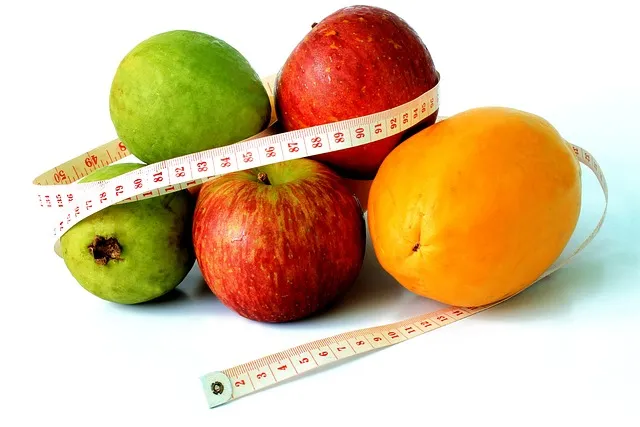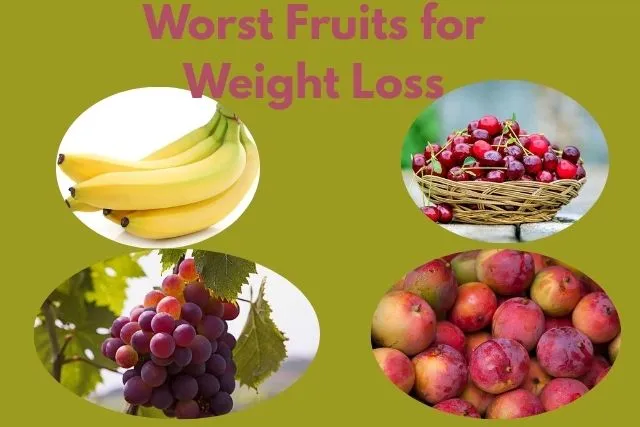Extreme Weight Loss Methods

Extreme weight loss methods can pose serious health risks. They often involve drastic calorie restriction or excessive exercise regimes.
Striving for a healthier weight is a common goal for many individuals, and with obesity rates climbing, the lure of extreme weight loss methods has never been stronger. These methods usually promise quick results, capturing the attention of those eager to shed pounds swiftly.
From liquid diets to the use of weight loss pills or even surgical procedures like bariatric surgery, the options are varied and can be quite controversial. While the immediate outcomes might seem appealing, the long-term effects on physical and mental health can be detrimental. It’s essential for anyone considering such approaches to weigh the potential dangers against the temporary benefits and to consult health professionals before taking drastic steps toward weight loss.
The Lure Of Instant Results
In today’s fast-paced world, everyone wants results yesterday. Weight loss is no exception. People often gravitate toward extreme weight loss methods. They promise quick and dramatic outcomes. The desire for instant results can be powerful. Yet, these methods raise questions about sustainability and health.
Societal Pressures For Quick Fixes
Every day, society inundates us with images of ideal body types. Media adverts flaunt ‘before and after’ weight loss transformations. Bold headlines promise you can ‘Lose 10 pounds in 10 days!’
These messages contribute to a culture of impatience. The perception is that slim equals success. This drives an urgent quest for rapid weight loss solutions.
- The effect of social media: continual peer comparison
- Celebrity endorsements: High-profile figures promoting fad diets
- Marketing strategies: Adverts pushing the ‘quick fix’
The Psychology Behind Immediate Gratification
Our brains are wired to seek out instant rewards. In the modern age, this instinct still plays a role in our decisions.
Weight loss is no exception. Achieving quick results can feel rewarding. It motivates some to continue their weight loss journey.
| Rewards of Instant Gratification |
| Immediate sense of achievement |
| Boost in motivation |
| Positive emotional response |
Understanding the draw of instant gratification helps us comprehend the appeal of extreme weight loss methods. Despite the potential risks, the promise of quick results often outweighs caution in the pursuit of an immediate reward.
Diving Into Diet Fads
Dieting trends come and go with the promise of rapid weight loss. Many seek out these extreme methods hoping for quick results. With a plethora of options available, it becomes essential to understand what each diet entails and the potential impacts they have on our health.
Juice Cleanses And Liquid Diets
Characterized by consuming only juices or liquids, these diets are popular for short-term weight loss. Let’s explore their benefits and drawbacks:
- Potential Detox: Juices from fruits and vegetables might eliminate toxins.
- Quick Weight Loss: Initial weight loss can be rapid due to low calorie intake.
However, they also have significant downsides:
- Lack of essential nutrients
- Not a long-term weight loss solution
Intermittent Fasting And Keto
Intervening periods of eating with fasting, intermittent fasting, and focusing on high-fat, low-carb foods, the keto diet are compared below:
| Intermittent Fasting | Keto Diet |
| Cycles between eating and fasting | Low carbohydrate intake |
| May improve metabolism | Induces ketosis to burn fat |
| Sustainable for some | May lead to rapid weight loss |
While both have success stories, important to note:
- Not suitable for everyone
- Possible nutrient deficiencies
- May require medical supervision
Before trying these diets, consulting with a healthcare provider is advisable. Sustainable lifestyle changes typically lead to better health outcomes in the long run.
Caloric Deprivation Tactics
Extreme weight loss often involves cutting back drastically on calories. Many turn to tactics that focus on this principle, but it’s not without risks. In this section, we explore caloric deprivation strategies, particularly very low-calorie diets and what dangers they pose to health.
Very Low-calorie Diets (vlcds)
Very Low-Calorie Diets, or VLCDs, are structured programs. They limit daily intake to 800 calories or less. These diets typically include shakes, soups, or bars designed to substitute meals and meet nutritional needs while cutting back on calories.
- Intended for rapid weight loss
- Medical supervision often required
Professionals might recommend them for certain individuals. Those who are severely obese could benefit under medical supervision.
The Risks Of Starvation Diets
Starvation diets are dangerous. They cut calories to extreme lows, similar to VLCDs, but without medical oversight.
- Increase risk of nutritional deficiencies
- Can lead to muscle loss and metabolic slowdown
- Pose potential for developing eating disorders
Side effects include fatigue, irritability, and, in some cases, organ failure. Extreme caloric restriction can harm the body and mental health. Always seek professional advice before trying such methods.
The Exercise Extremes
Extreme weight loss often pushes the boundaries of typical exercise routines. Pushing your body to the limits might sound appealing, but it’s essential to understand the balance between effective and extreme. Let’s dive into exercise methods that can be intense and discuss when they might be too much.
High-intensity Interval Training (hiit)
High-Intensity Interval Training, or HIIT, is a popular choice for burning fat fast. This approach shocks the body into burning calories at a high rate. Here’s why HIIT stands out:
- Efficiency: Workouts are usually quick, sometimes just 30 minutes.
- Calorie Burn: Your body continues to burn calories even after the session.
- Versatility: It can include sprints, weights, or bodyweight exercises.
However, HIIT is tough and requires solid fitness levels.
Overtraining: When Too Much Is Harmful
While some exercise can improve your health, too much can harm your body. Overtraining occurs when there’s inadequate recovery between workouts. Recognizing the signs of overtraining is critical:
| Symptom | Impact on Body |
| Chronic Fatigue | Constantly tired, lack of energy |
| Injuries | Muscle strains, joint pain |
| Performance Plateau | No improvement, possible decline |
| Mental Burnout | Lack of motivation, irritability |
| Insomnia | Difficulty sleeping, restlessness |
To prevent overtraining, include rest days, get plenty of sleep, and listen to your body. A balanced approach promotes sustainable weight loss success. Your well-being comes first.
Prescription Pills And Otc Options
When it’s about dropping pounds, some turn to prescription pills and over-the-counter (OTC) options. These can be powerful aids. But remember, they’re not magic. Success often requires proper diet and exercise too. Let’s look at popular types: appetite suppressants and fat blockers.
Appetite Suppressants
Appetite suppressants work by making you feel full sooner. This reduces how much you eat. They come in two forms:
- Prescription medications like Phentermine.
- OTC supplements containing ingredients like caffeine.
They can be effective. Yet, they are not for everyone. Always talk with a doctor before starting any of these pills.
Fat Blockers
Another group is fat blockers. The main ingredient is often orlistat. It comes in:
| Type | How It’s Used |
| Prescription | As Xenical for long-term use. |
| OTC | As Alli for shorter periods. |
Even if they block fats, eating healthy is crucial. Without a good diet, you won’t see the best results.
The Thin Line Between Use And Abuse
Using these pills can help. But, there’s a thin line between use and abuse. Taking more than prescribed, or for longer, can lead to problems.
- Side effects might happen, such as:
- Heart issues from appetite suppressants.
- Digestive problems from fat blockers.
- Addiction risks from misusing prescriptions.
- Wasting money on OTCs without proven benefits.
Surgical Interventions
For those facing severe obesity, surgical interventions can offer a path to significant weight loss. These methods are not first-line treatments and are typically considered when other methods fail. Surgical weight loss options are extensive procedures. They require serious commitment and carry various risks and potential benefits.
Bariatric Surgery Types
Bariatric surgery is a collective term for different types of procedures. These surgeries change your digestive system to help lose weight. Here are the most common types:
- Gastric Bypass: Surgeons create a small pouch and attach it directly to the small intestine.
- Sleeve Gastrectomy: A large portion of the stomach is removed, leaving a smaller, banana-shaped stomach.
- Adjustable Gastric Band: A band is placed around the stomach’s upper part, creating a small pouch.
- Biliopancreatic Diversion with Duodenal Switch: A complex procedure that removes a part of the stomach and bypasses a large portion of the small intestine.
Understanding The Surgical Risks
Like any major surgery, bariatric procedures come with risks:
| Short-Term Risks | Long-Term Risks |
|
|
Patients must discuss these risks with a doctor. A detailed assessment can help understand personal risks. This will ensure a safer surgical outcome.
Unconventional And Dangerous Practices
In the quest for quick weight loss, some people turn to unconventional and risky methods. These often promise fast results without the need for diet or exercise. Yet, they come with a high price tag for health. Below are some of the most hazardous strategies that have emerged.
Tapeworm Diets
The tapeworm diet involves intentionally ingesting tapeworms. They are meant to consume food inside your stomach. This method is both horrifying and extremely unsafe. The risks include:
- Malnutrition
- Abdominal pain
- Organ blockages
Doctors strongly advise against this dangerous approach.
Detox Teas
Detox teas are marketed as a natural way to shed pounds quickly. They often contain:
| Ingredients | Effects |
| Laxatives | Can cause dehydration |
| Diuretics | May lead to electrolyte imbalance |
The Cost Of Extreme Weight Cutting Techniques
Chasing quick fixes in weight loss often comes with a hidden cost. Not just money but your health. The impact includes:
- Potential organ damage
- Increased risk of eating disorders
- Emotional and physical stress
Investing in sustainable health habits is always safer.

The Impact On Mental And Physical Health
In pursuit of quick weight loss, some individuals turn to extreme methods. These methods often promise rapid results. Yet, they can impact mental and physical health deeply. From the way we view ourselves to our body’s core functions, extreme dieting techniques can disrupt much more than the number on the scale.
Body Image And Eating Disorders
Extreme weight loss tactics can warp perceptions of an ideal body. This twisted view often leads to serious issues, like eating disorders.
The desire for rapid weight loss might start as a simple goal. But for some, it becomes a battle with their self-image. Obsession with body shape and weight can take over one’s life, leading to mental health struggles.
Long-term Health Consequences
Quick-fix diets often ignore the vital nutrients your body needs. This neglect can cause long-term damage to your health. Here are some risks linked to extreme weight loss techniques:
| Consequence | Description |
| Malnutrition | Essential vitamins and minerals become deficient. |
| Metabolic Slowdown | Body reduces energy use, making weight loss harder. |
| Heart Problems | Irregular heartbeats and heart failure risks increase. |
| Weak Bones | Lack of calcium and vitamin D leads to fragile bones. |
Beyond the visible changes in appearance, your body’s internal processes suffer. Your metabolism can stall, organs may strain, and overall vitality dwindles. Instead of a boon to health, extreme weight loss becomes a serious risk.
Sustainable Alternatives To Extreme Weight Loss
Forget quick fixes and risky diets. Drop pounds steadily. Embrace sustainable alternatives. Say hello to lasting wellness.
Balanced Nutrition And Lifestyle Changes
Nourish, don’t deprive. Your body craves a variety of nutrients. Vitamins, minerals, and antioxidants keep you thriving.
Design your plate with these tips:
- Half with fruits and veggies. They pack essential nutrients.
- Quarter with lean proteins. They build and repair tissues.
- Quarter with whole grains. They fuel your body.
Small swaps lead to big wins. Choose whole foods over processed options. Reach for water, not sugary drinks. Small steps pave the way to a healthier lifestyle.
| Old Habit | New Swap |
| White bread | Whole-grain bread |
| Soda | Sparkling water |
| Fast food | Home-cooked meals |
Mental Health Support And Body Positivity
Weight is just a number. Your wellbeing is more. Mental health matters.
Strike a balance:
- Connect with loved ones. Support is key.
- Pick activities that bring joy. Enjoyment boosts motivation.
Celebrate every size. Love your body, every curve, every line. Boost your confidence.
Seek guidance when things get tough. Therapists can help. Support groups offer a shared space. Find comfort and advice.
Remember, your journey is unique. Your pace is perfect. Build habits that last. Enjoy the ride towards a fitter you.
Professional Guidance And Safe Practices
Embarking on a journey to lose weight can often lead you down a rabbit hole of extreme measures. Dramatic diets or intense exercise regimens promise quick results. Yet, they may not be sustainable or safe. In this section, we focus on the importance of professional guidance and safe practices in your quest for weight loss. Always consider health over haste. Here’s how to make informed decisions with the help of professionals.
Consulting Healthcare Providers
Seeking advice from healthcare professionals is crucial before starting any weight loss plan. Doctors, dietitians, or certified nutritionists can offer expert insight into your body’s needs. They identify potential risks and ensure your approach to weight loss is tailored to your health.
- Medical Assessment: Understand your body’s unique health requirements.
- Customized Advise: Receive personalized nutritional and fitness guidance.
- Safe Monitoring: Track your progress under professional supervision.
Developing A Personalized And Healthy Plan
Creating a weight loss plan that fits your lifestyle, preferences, and health status is key. This approach ensures that the journey is not only effective but also enjoyable and maintainable.
| Steps | Description |
| Balanced Diet | Incorporate a variety of foods to provide essential nutrients. |
| Regular Exercise | Include physical activity that you enjoy and can perform consistently. |
| Accountability | Ongoing support from professionals and peers to maintain motivation. |
Combining professional advice with a personalized plan ensures a balanced and realistic path to weight loss. Safety and wellbeing remain the priorities over rapid, short-term fixes.
Success Stories: Cautionary Tales Vs. Inspirational Journeys
Every weight loss story has its own flavor. Some are sober warnings, while others motivate us to strive for better health. Exploring these narratives gives us valuable insights into the extremes of dieting and fitness regimens. We learn not just the methods but also the emotional and physical impact they have on individuals.
Learning From Others’ Experiences
Reality checks come in different forms. Few are as stark as the tales of extreme weight loss. These stories often show sheer willpower and determination. Yet, they also reveal the risks. From nutritional deficiencies to psychological turmoil, the cost can be high. We read, we see, we take note – not all is as it appears.
- Quick fixes can lead to lasting health issues.
- Intense diets may not be sustainable.
- Physical transformation doesn’t always equal happiness.
Identifying Healthy Weight Loss Strategies
As we sift through extreme weight loss chronicles, we discover valuable lessons. Healthy weight loss is key. It’s the subtle changes that craft a success story we all aspire to. With balanced diets and regular exercise, weight loss is more than a physical alteration—it’s a new lease on life.
| Unhealthy Methods | Healthy Alternatives |
| Severe calorie restrictions | Moderate calorie deficit |
| Excessive exercise | Structured fitness plan |
| Diet pills or fads | Whole foods and balanced nutrients |
Every inspiring journey sheds light on the route to wellness. These stories encourage safe, incremental lifestyle adjustments. With patience and persistence, the goals are reachable. These stories aren’t just journeys—they’re maps to personal transformation.
Conclusion: The Price Of Extreme Measures
Seeking rapid weight loss through extreme diets and procedures comes with hefty costs. Physical and emotional health often pays the price. In this concluding section, we’ll explore the true consequences of these radical choices.
Evaluating The True Costs
- Health Risks: Extreme diets can lead to malnutrition, dehydration, and heart problems.
- Mental Wellbeing: Such measures can cause stress, anxiety, and a negative body image.
- Temporary Results: Quick fixes rarely lead to lasting weight loss, often resulting in a rebound.
| Method | Cost | Longevity of Results |
| Supplements | $50-$100/month | Variable |
| Surgery | $15,000+ | 1-5 years |
| Crash Diets | $100-$500 | Short-term |
Embracing Health Over Speed
Focusing on health rather than quick results proves more beneficial. A gradual approach to weight loss sustains long-term health and wellness.
- Balanced Diet: Involves all food groups, supports ongoing health.
- Regular Exercise: Builds strength, burns calories, boosts mood.
- Lifestyle Changes: Sustainable habits lead to durable weight loss.
Frequently Asked Questions For Extreme Weight Loss Methods
Are Extreme Weight Loss Methods Safe?
Extreme weight loss methods often come with significant risk. Quick, drastic weight loss can lead to malnutrition, heart problems, electrolyte imbalances, and gallstones. It’s vital to approach weight loss under professional guidance to prioritize health.
How Do Extreme Diets Affect Metabolism?
Extreme diets, especially those that involve severe calorie restriction, can slow down metabolism. As the body perceives a state of starvation, it conserves energy, making future weight loss and maintenance more challenging.
Can Weight Loss Surgery Be A Healthy Option?
Weight loss surgery can be a healthy option for clinically obese individuals who have struggled with traditional weight loss methods. However, it requires a lifelong commitment to dietary changes and medical follow-up to ensure safety and effectiveness.
What Is The Impact Of Weight Loss Pills?
Weight loss pills may offer temporary results, but they can also cause side effects like increased heart rate, high blood pressure, agitation, and sleeplessness.
Conclusion
Embarking on a weight loss journey demands commitment and informed decisions. Extreme methods may promise quick results but often risk your health. Balance and sustainable habits are key. Choose safe, proven strategies and consult a healthcare provider. Prioritize your well-being on this life-changing path.








